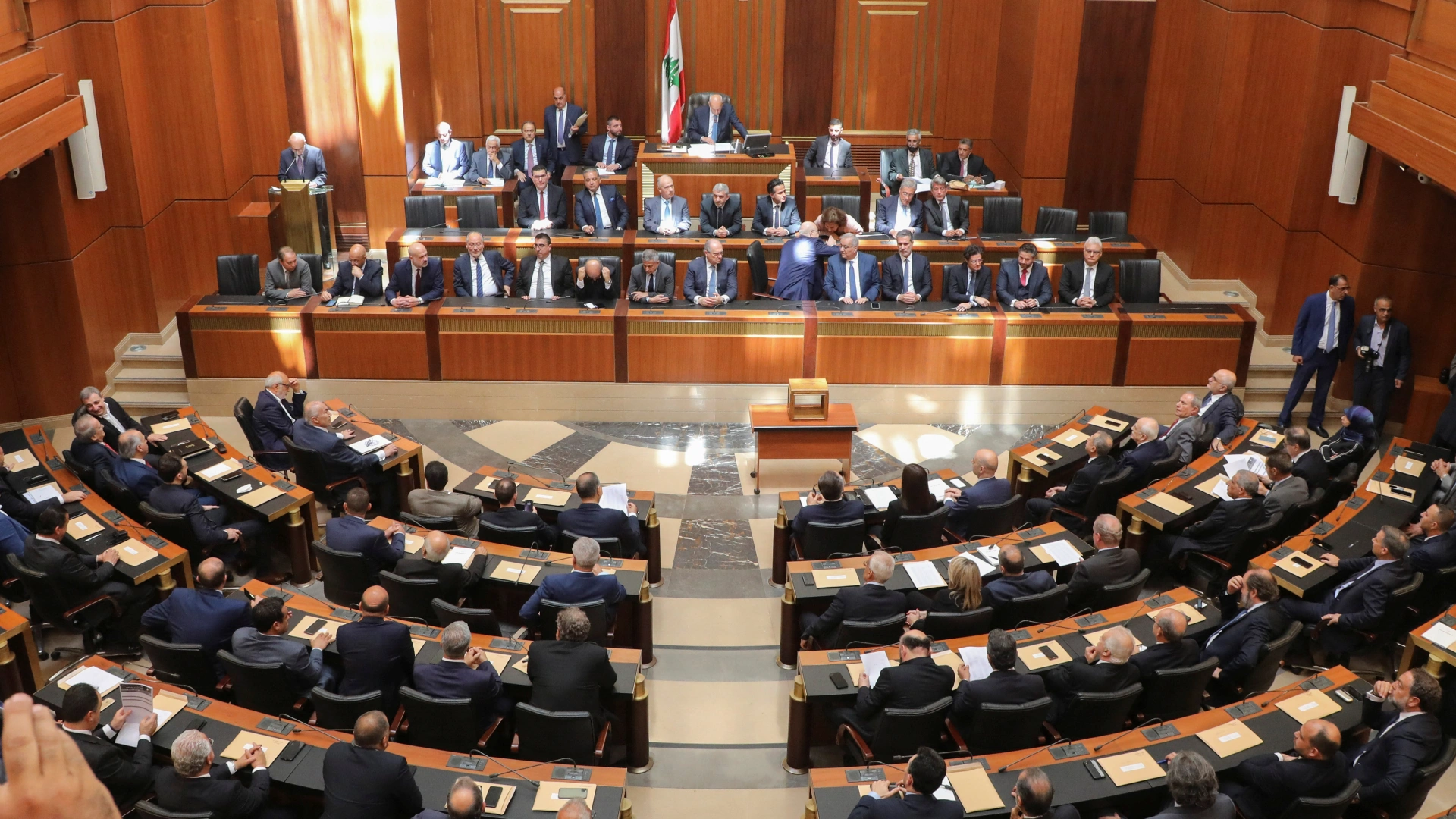Lebanese parliamentarians failed to elect a new president for the twelfth time on Wednesday, June 14.
The session ended after the first round of votes, as Hezbollah and Amal MPs left the room, causing the parliament to lose quorum. Jihad Azour had received 59 votes, against Suleiman Frangieh’s 51.
In the first round, a two-thirds majority (86) is required to be elected. In the second round, a simple majority of 65 is sufficient.
The session marks a return to the vote after months of deadlock, and involved Hezbollah, Amal and the Free Patriotic Movement in ways that are unprecedented since the end of former President Michel Aoun’s term.
Hezbollah and Amal decided to back Frangieh, head of the Marada Movement and a pro-Hezbollah politician who enjoys close ties with Syrian President Bashar Al Assad. The Free Patriotic Movement, however, refrained from endorsing Frangieh due to longstanding tensions and issues between the FPM and the Marada.
The FPM, instead, is facing internal divisions over who to back. Most of the party voted for Jihad Azour, a candidate backed by the March 14 coalition, which includes traditional FPM rivals, and some independent MPs. A few FPM members, however, refused to endorse Azour.
This marks a rift within the March 8 coalition, and a sign that Hezbollah might have gone too far in backing an ally the FPM strongly opposes. This does not, however, show the full picture of the presidential “race.”
Who are the candidates?
Several names have been proposed throughout the past 12 sessions, with some MPs voting for deceased international figures such as Martin Luther King Jr and Salvador Allende. The current (real) candidates give us a glimpse of the political sphere surrounding this election.
Suleiman Frangieh is an old figure in Lebanese history and politics, as he descends from, and currently leads the Frangieh political family. His grandfather once served as President of Lebanon, and his father, along with his mother and sister, were murdered in the 1978 Ehden massacre by Phalangist militiamen.
Frangieh is a close ally to the Syrian government and, for a while, allegedly enjoyed French backing for his candidacy. In parliament, he is backed by Hezbollah, the Amal Movement, his own Marada Movement party bloc and five other MPs. Many believe a Frangieh presidency would give Hezbollah and Syria increased control over Lebanon, while Hezbollah claims to be defending the resistance by backing their candidate.
Facing Frangieh, Jihad Azour is currently the Director of the Middle East and Central Asia Department of the International Monetary Fund (IMF). He also served as Lebanon’s Minister of Finance under Fouad Siniora’s government from 2005 to 2008.
Azour is seen by many politicians as the necessary politician to defeat Hezbollah’s candidate and believe in potential economic reforms under his mandate. However, others have cited his previous work within the country’s financial system as well as his vague plans for his potential presidency as reasons to question his candidacy.
“Change” MPs, members believed to be representing Lebanon’s protest 2019 movement, were initially divided over Azour, but most of them voted for him in the session. MP Ibrahim Mneimneh mentioned threats and intense pressure he received from the pro-Azour side to vote for him. Meanwhile, Hezbollah officials have called Azour a “confrontational” candidate and insisted on backing Frangieh, despite the highly polarizing nature of his candidacy.
Where we currently stand, no candidate enjoys a majority of parliamentary votes to reach the presidency. Other “compromise” figures have been proposed, such as former minister of interior Ziad Baroud, but to no avail.


